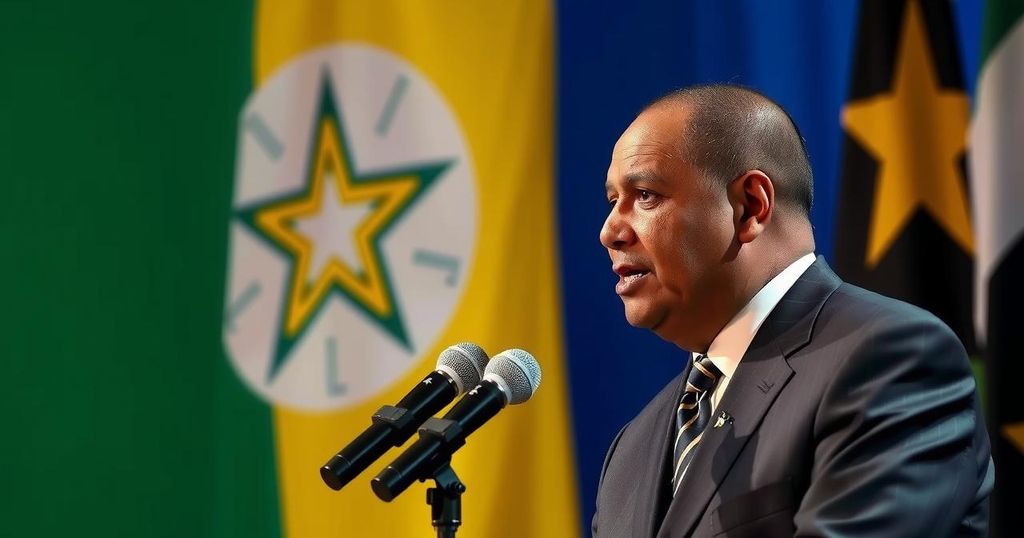Turkey’s Expanding Influence in Africa: A Non-Colonial Approach to Partnership
Turkey is enhancing its influence in Africa through defense projects, robust trade ties, and diplomatic mediation, particularly in the ongoing disputes between Ethiopia and Somalia. Its non-colonial history has positioned it as a sought-after partner in the region, with significant investments bolstering its credibility and relationships. The expectation of increasing trade and military cooperation underscores Turkey’s strategic interests in Africa.
Turkey is extending its influence in Africa by leveraging its defense initiatives and a robust trade network, a condition further favoring it due to its non-colonial history, as noted by diplomatic sources. Ahead of an upcoming ministerial gathering scheduled for November 2 and 3 in Djibouti, an Ankara-based diplomatic source indicated that Turkey is now considered a highly sought-after partner in Africa, especially among anti-imperialist leaders looking for alternative alliances. Historically, while the Ottoman Empire maintained control over various African territories, this dominance diminished by the 19th century, leading to the formation of the Turkish Republic in 1923. Turkey’s growing involvement in Africa is marked by its role as a mediator in the ongoing disputes between Ethiopia and Somalia, particularly over maritime access. The source highlighted that Turkey is viewed as ideally positioned to facilitate dialogue due to its established trust from both parties. Collaborative negotiations are advancing, albeit gradually, as Turkey’s two-decade-long investments in Somalia—encompassing agricultural development, infrastructure projects such as an airport in Mogadishu, military training facilities, schools, and healthcare services—have fortified its diplomatic standing. Additionally, Turkey’s exploration vessel, the Oruc Reis, recently arrived in Somalia to commence oil and gas exploration under a new drilling agreement. Turkey has also established similar agreements with Niger, focusing on oil, gas, and mining operations, whereby the Turkish mining company MTA has managed to secure several gold mines in the Sahel region, supplemented by uranium prospects. Furthermore, Turkey’s military cooperation agreements with over 25 African nations strengthen its position as a critical security partner—especially significant in regions facing security crises, as stated by Senegalese President Bassirou Diomaye Faye. Trade relations between Turkey and African nations are projected to exceed $40 billion by 2022, bolstered by the operations of Turkish Airlines, which connects approximately 50 destinations across the continent. The Turkish construction industry, exemplified by a $6.5 billion railway project in Tanzania, further consolidates Turkey’s reputation and influence in Africa.
Turkey’s historical context in Africa, stemming from the Ottoman Empire, informs its current diplomatic strategies as it cultivates relationships devoid of the traditional colonial baggage that other Western nations carry. This unique positioning has allowed Turkey to become a respected partner in African diplomacy and security matters, fostering trust amid various geopolitical tensions. The country has invested heavily in regional development and military cooperation, signaling its commitment to contributing to local stability while advancing its economic interests. Continued engagements, such as ministerial meetings and collaborative projects, reflect a strategic expansion of Turkey’s influence across the African continent, aimed at consolidating its role as a key player in various sectors, including energy, defense, and infrastructure.
In conclusion, Turkey’s engagement with Africa is characterized by a multifaceted approach that intertwines diplomatic mediation, economic investment, and military cooperation. By leveraging its historical context and focusing on non-colonial partnerships, Turkey is establishing itself as an important ally for many African nations. The ongoing initiatives in Somalia and Ethiopia highlight Turkey’s commitment to fostering stability and economic growth, with mutual benefits anticipated from increased trade and cooperation across various sectors.
Original Source: www.arabnews.com




Post Comment